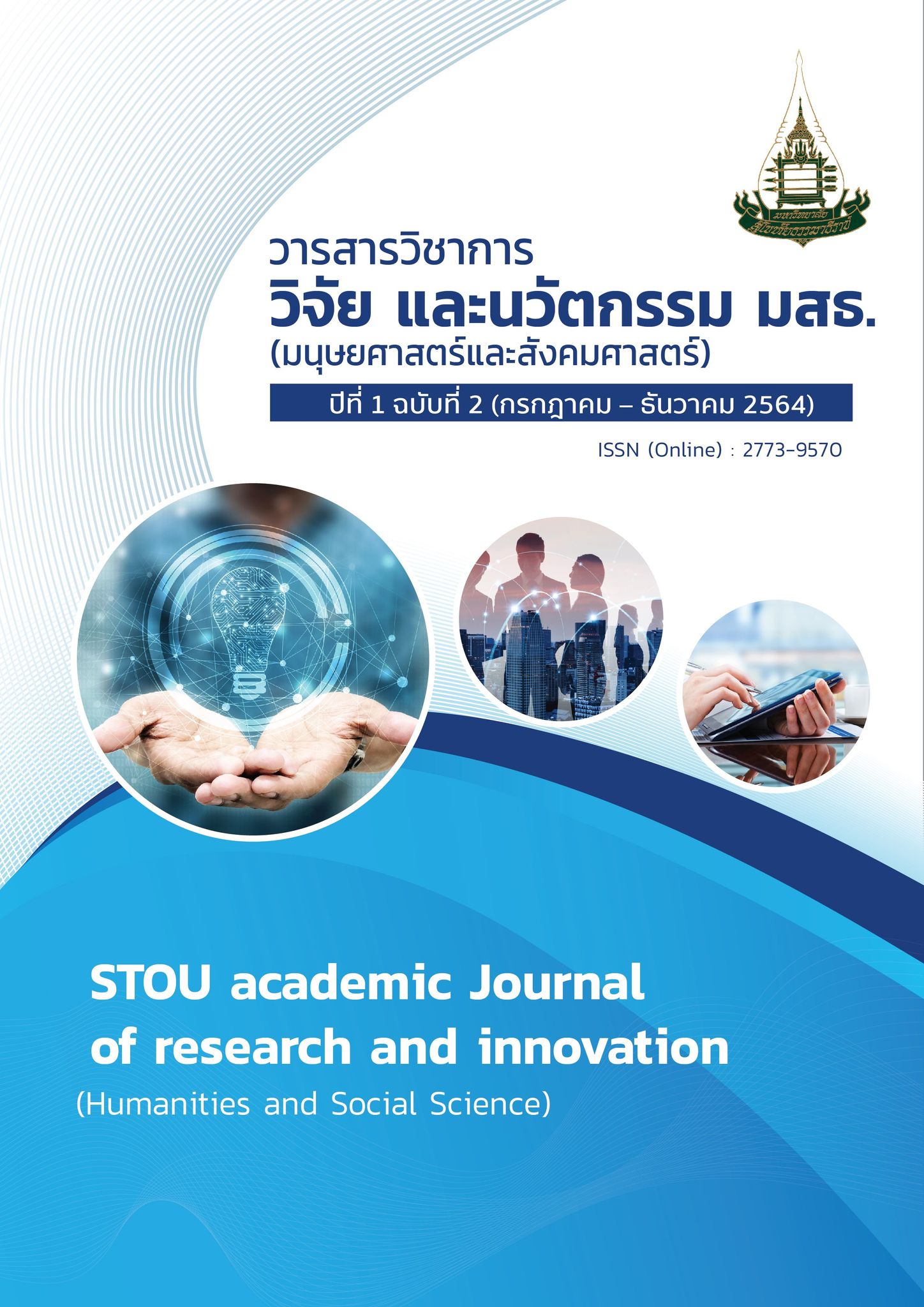ELDERLY’S WELL-BEING PROMOTION ACCORDING TO BUDDHADHAMMA IN SUPANBURI PROVINCE
Keywords:
Elderly, Well-Being, Bhavana 4 PrinciplesAbstract
Human is by nature is a social animal as Aristotle, legendary Greek said 350 years before Christian Era. Humans at any age have social needs, need to live with others in society, want to be loved to be accepted in society, to be part of community and society, want to participate in social activities. Responses to these needs can help make senior citizens more socially active, improve quality of life, prevent injury, sickness and depress and loneliness. At present, senior citizens in Thailand is increasing continuously. These is necessity to study and develop the caring system of senior citizens wellbeing from the root of community which is the sustainable development. Wellbeing caring system is very important for senior citizens because that have to face changes in many dimensions; physical, mental, intellectual and social dimensions. Luckily Thailand is the land of Buddhism, there are many Buddha’s teachings that can be applied in daily life to create balance in life by applying Bhavana 4, four principles of development, consisting of physical development, moral development, mind or emotional development and wisdom development. These principles can be applied to develop seniors’ behaviors to maintain, to protect body, mind, society and environment so that the senior citizens will have wellbeing and happy life.
References
กรมอนามัย กระทรวงสาธารณสุข. (2557). คู่มือการดำเนเนงานเมืองที่เป็นมิตรกับผู้สูงอายุ Global Age-Friendly City: A Guide. (พิมพ์ครั้งที่ 2). กรุงเทพฯ: สำนักพิมพ์องค์การทหารผ่านศึก.
พระพรหมคุณาภรณ์ (ป.อ.ปยุตฺโต). (2559). สุขภาวะองค์รวมแนวพุทธ. (พิมพ์ครั้งที่ 11). กรุงเทพฯ: สหธรรมิก.
__________. (2547). ธรรมนูญชีวิต. (พิมพ์ครั้งที่ 32). กรุงเทพฯ: สหธรรมิก.
พระภูชิสสะ ปญฺญาปโชโต. (2562). การเสริมสร้างสุขภาวะตามหลักภาวนา 4 ของผู้สูงอายุในตำบลยางฮอม อำเภอขุนตาล จังหวัดเชียงราย. วารสารคณะสังคมศาสตร์ มหาวิทยาลัยมหาจุฬาลงกรณราชวิทยาลัย, น. 58.
พระสุนทรกิตติคุณ (เดชา อินทปญฺโญ). (2560). หลักพุทธธรรมกับการดูแลสุขภาพแบบองค์รวมในผู้สูงอายุ. วารสารมหาจุฬาวิชาการ มหาวิทยาลัยมหาจุฬาลงกรณราชวิทยาลัย วิทยาเขตพะเยา, น. 20.
มหาจุฬาลงกรณราชวิทยาลัย. (2539). พระไตรปิฎกภาษาไทย เล่ม 13 และเล่ม 22 ฉบับมหาจุฬาลงกรณราชวิทยาลัย ฉลองสิริราชสมบัติ 50 ปี พระบาทสมเด็จพระเจ้าอยู่หัวภูมิพลอดุลยเดช. กรุงเทพฯ: โรงพิมพ์มหาจุฬาลงกรณราชวิทยาลัย.
ราชกิจจานุเบกษา. (2550). พระราชบัญญัติสุขภาพแห่งชาติ พ.ศ. 2550.
วิพรรณ ประจวบเหมาะ (บรรณาธิการ). (2555). รายงานประจำปีสถาณการณ์ผู้สูงอายุไทย พ.ศ. 2555 มูลนิธิสถาบันวิจัยและพัฒนาผู้สูงอายุ (มส.ผส.). นนทบุรี: เอส.เอส.พลัส.
สำนักงานคณะกรรมการพัฒนาการเศรษฐกิจและสังคมแห่งชาติ. (2563). แผนพัฒนาเศรษฐกิจและสังคมแห่งชาติ ฉบับที่ 11 (พ.ศ. 2555 - 2559). สืบค้นเมื่อ 29 มกราคม 2563 จาก https://www.nesdb.go.th
สำนักงานคณะกรรมการพัฒนาการเศรษฐกิจและสังคมแห่งชาติ. (2563). แผนพัฒนาเศรษฐกิจและสังคมแห่งชาติ ฉบับที่ 12 (พ.ศ. 2560 - 2564). สืบค้นเมื่อ 29 มกราคม 2563 จาก http://ayuttaya.nso.go.th/
สมัชชาสุขภาพจังหวัดสุพรรณบุรี. (2559). ระเบียบวาระประชุมที่ 4/59 หน้า 4-6 วันที่ 25 พฤษภาคม 2559.
Bundhamcharoen, K., &Sasat, S. (2008). Long-term care: Comparative analysis for policy recommendation. Rama Nurs J, 14(3).





